“Sometimes the muse comes and we do very creative work. Other years we do ordinary work and let the spirit lay fallow,” explained Hector, a Cuban farmer turned ceramist. We visited his creative and beautiful farm/pottery studio somewhere between Varadero and Havana and saw examples of both the very creative and ate lunch on what he would call “ordinary.”
We stopped there on our return to Havana after a visit on the famous beach resort lined peninsula. In the middle of so much decay and decline (see last week’s blog), this plot of land and the wonderful warm creative people lifted my spirits.
Creativity explodes on a farm in Cuba
As did some other places we visited on our People-to-People trip with Backroads last Jan. I found my self continually encouraged with the spirit of the people in a country that has had a tough 50 years. A really tough time.
We saw how the people are moving beyond the 100 percent state-run economy with individual efforts, many art based.
So, what about Hector and his project? He has a farm, but expanded the operation with beautiful sculpture filled grounds, a palapa (out door thatched roof area for meals) and ceramic studio. The idea is to encourage creativity in anyone who wishes to join them. Inspiring.
Music, Art, Dancing and Dinner at El Tanque
Probably my favorite evening activity of our People-to-People experience was the one at El Tanque. What’s that you ask?
Thirteen years ago group of residents in a downtrodden area of Havana decided they wanted an art focused community center. When they asked the government for a building they were told none was available but they could have an old Water Tank—gritty and in terrible shape.
They banded together, cleaned it out and now have a community cooperative selling art from the tank. The project has expanded to a dining space and several areas for dancing and music. We experienced first hand the rhythm in the collective Cuban heart where all ages join in the music making and art creation.
It didn’t take much for our group with dancing bones (several of whom were very musical) to join the Cubans for an especially lively evening. For me, the “a ha” was how art, music and gathering around a table to enjoy a meal created with love can transcend all barriers. It was one of those evenings I’ll always remember and why I want to continue to travel. We enjoyed Victor’s introductions and descriptions of the activities at El Tanque.
Jose Fuster : Picasso of the Caribbean
The final stop on DesignDestinations today for an art experience is the studio of Jose Fuster, a former Cuban Fisherman in his 80s. It is much more than a studio. Several galleries. Pool area. Up and down. In and out and around the neighborhood he has created mosaics that stop you in your tracks.
Every possible surface is covered with his creations, mostly mosaics using recycled bits of glass and painted ceramic panels. While we didn’t get to meet him, his son told us that Fuster, is fond of saying, “Picasso was my spiritual father and Gaudi was my crazy uncle.”
It is an exuberant expression of the human spirit contrasting to the dreary devastation of so much of Cuba. The celebration of art makes me think of the way my husband described Cuba. He used a Leonard Cohen lyric, “There’s a crack in everything that let’s the light in.”
Approximately 100,000 people took legal People-to-People trips last year, flying on charter flights from Miami. While many tour companies are providing Cuban People-to-People trips, we found the one offered by Backroads to be an excellent, eye-opening, educational and very fun experience. For more information, click here for Backroads Cuba travel.

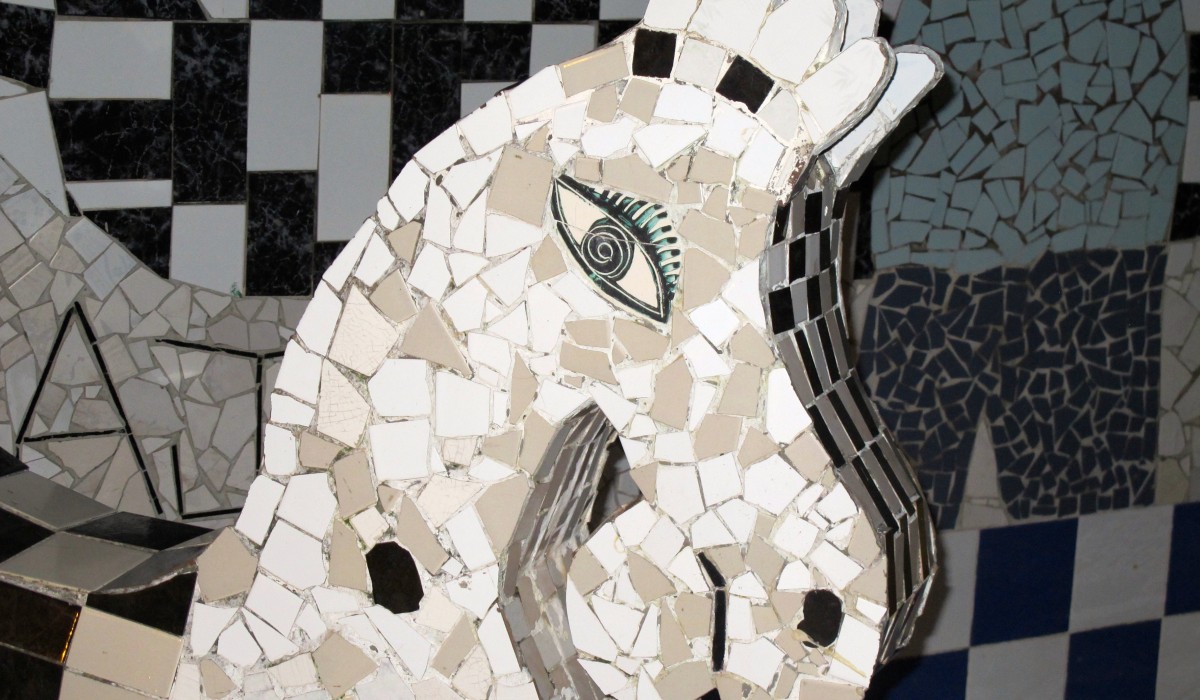

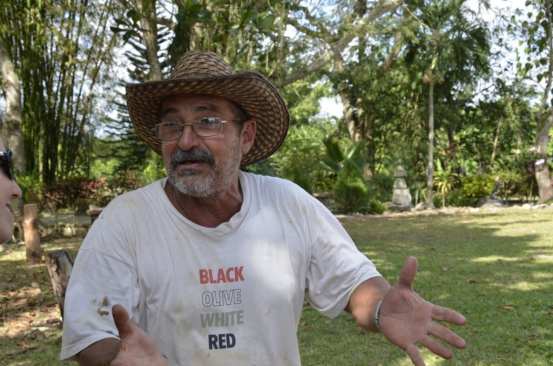

























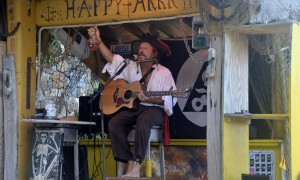
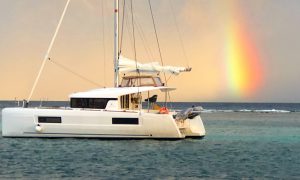
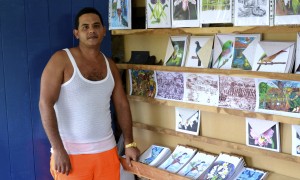

Comments
3 Commentspeggy depersia
Mar 31, 2014“rhythm in the collective Cuban heart”….what a wonderful line. I do think there is so much to be valued that lies in the collective unconscious and you have highlighted a special feature of the Cuban collective psyche…expressed in these images most vibrantly.
mike krug
Apr 12, 2014Susan – glad to read something of Cuba. It has always fascinated me. My grandmother raved about Havana in the 20’s/30’s. She always said it was so “gay”. (Different meaning.)
Anything left of “colonial” Havana?
Cuba: Preserving the Culture | DesignDestinations
May 5, 2014[…] are some glimmers of what makes Cuba Cuba that we saw on our People-toPeople trip last […]